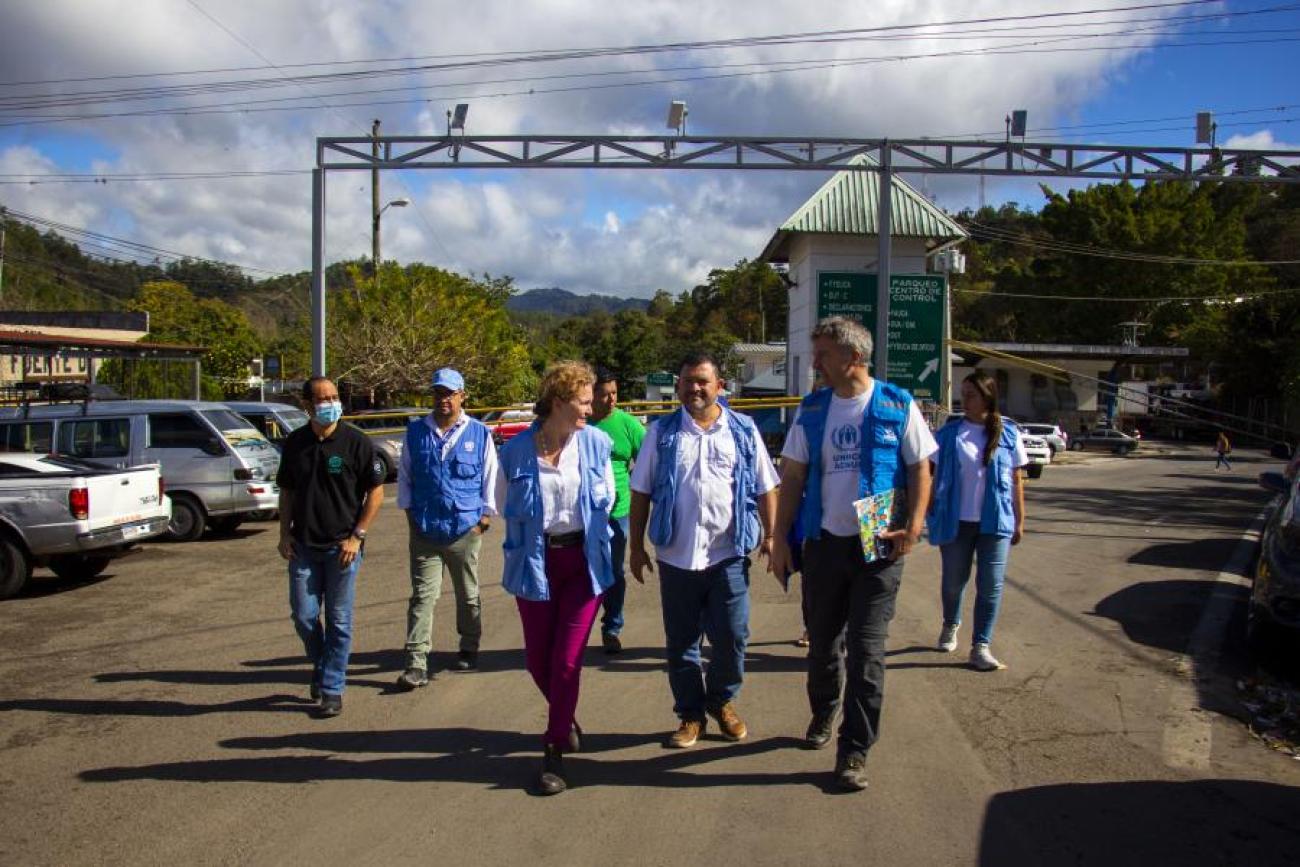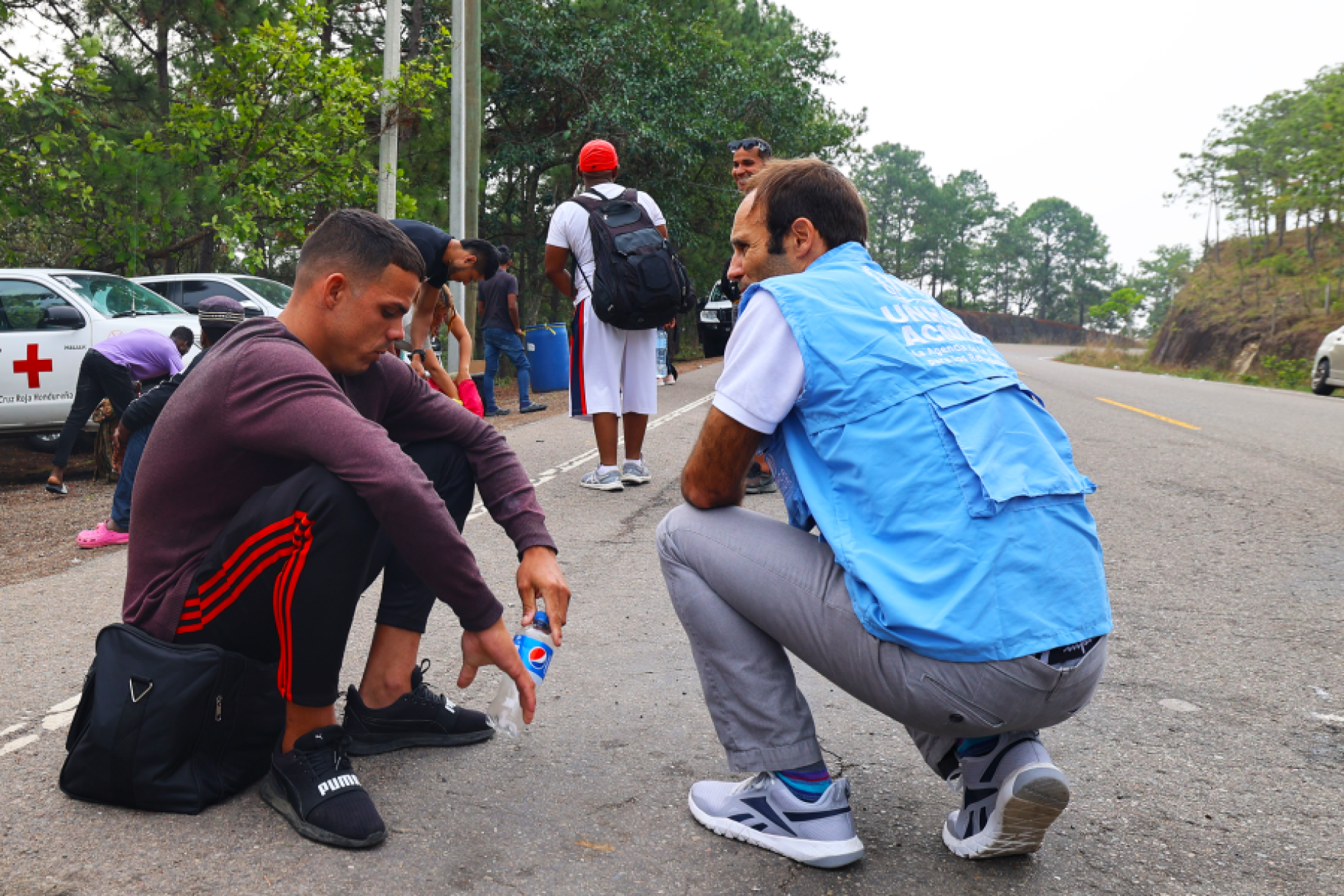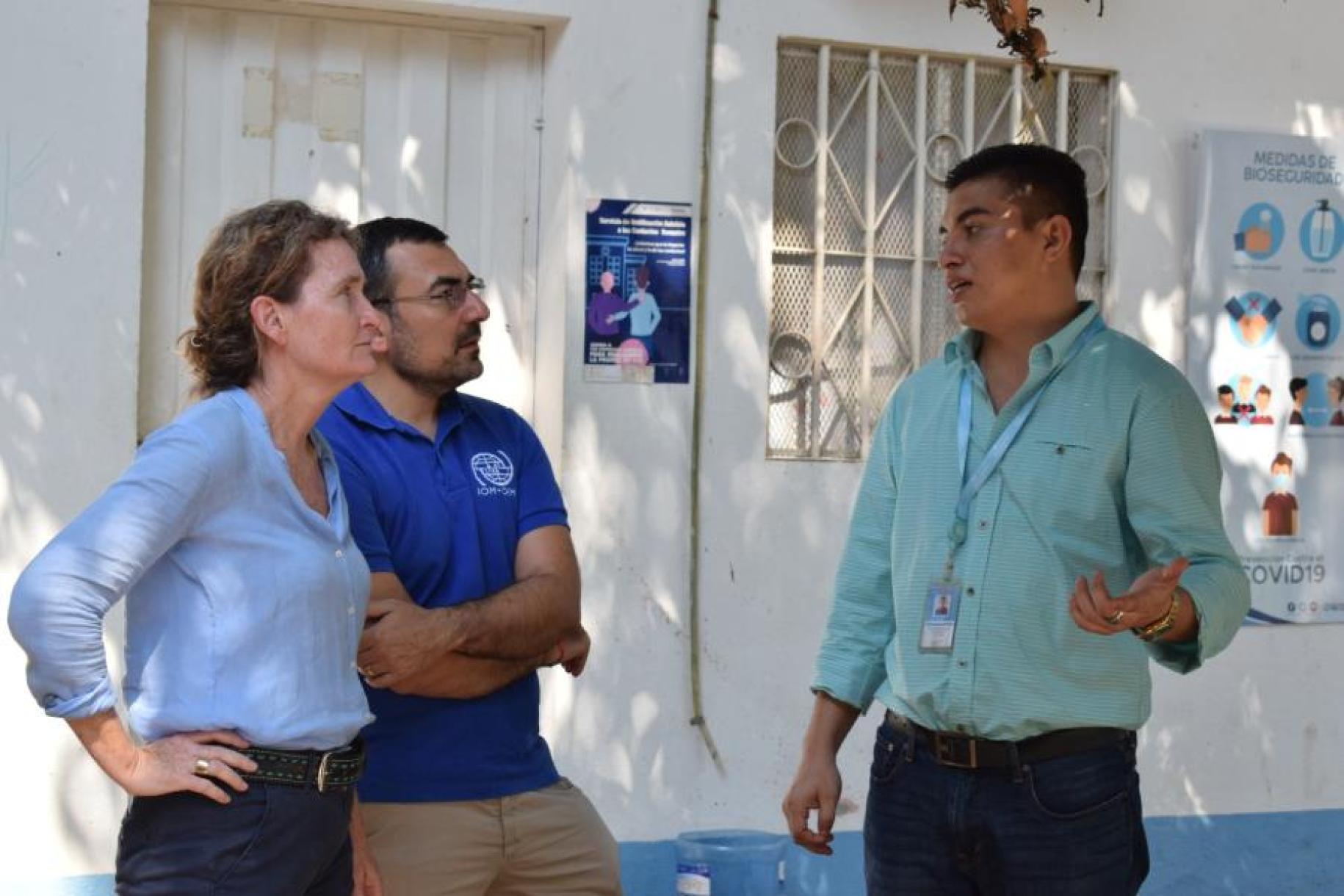Comprehensive responses for migrants and refugees, a need that cannot and must not be postponed

Throughout history, millions of people have left their countries of origin, either in hope of finding better living conditions, or fleeing their homes to escape conflict and persecution. The number of people on the move today is higher than at any other time in history; a reflection of the persistent global crises which require comprehensive, ‘whole of society’ responses.
In particular, mixed flows of migrants and refugees in Mexico and Central America represent a complex and multidimensional challenge which requires commitment from all actors involved in the region. The recent events in Ciudad Juárez, Mexico, where more than 39 people in transit, including 6 Hondurans, died in immigration detention, shows the urgent need to strengthen national response structures, guarantee the rights of refugees and migrants, and find lasting solutions to the human mobility situation in the region.
It is crucial to address the structural causes of displacement in the countries of origin, promoting human rights, peace, peaceful coexistence, and fostering sustainable development and social justice in the region. No country can face these challenges alone. Leaders must take serious steps to respond to this challenge and reach firm agreements which comply with international commitments. In this sense, multilateral cooperation is a transformative agent of change in tackling the challenges of human mobility.
To this end, the United Nations is providing technical support to countries to ensure they respect, protect and fulfill all the human rights of migrants and refugees. In addition, in cases where required, such as during humanitarian crises related to the massive movement of people, it provides humanitarian assistance to complement national responses.

In 2016, Member States asked the United Nations to strengthen and improve the mechanisms for the protection of people on the move. As a result, two Global Compacts were established: the Global Compact for Safe, Orderly and Regular Migration and the Global Compact on Refugees. Honduras is not only a signatory country, but also a forerunner of the former. The country hosted the Conference that gave rise to the regional chapter of the second: the Regional Integrated Framework for Protection and Solutions (RIFPS).
The international commitments adopted by the Government of Honduras in these frameworks represent a guide for the fulfillment of its human rights obligations, including the protection of asylum seekers and measures to reduce the risks and vulnerabilities faced by migrants and refugees during different stages of their journey. These frameworks also provide guidance to support migrants and refugees integrate into their host communities on arrival.
During recent visits to the southern and western borders of Honduras, we spoke to people transiting through the country who shared stories about their journey and the challenges they encountered along the way. They told us about some of the support they received in Honduras, including in reception centers in Danlí, El Paraíso, and the Temporary Accommodation Center in Trojes, El Paraíso, which have been set up with the support of the United Nations. However, given the scale of migrant and refugee flows, the needs of the population and the challenges they face have increased progressively since last year.

We have closely monitored the situation of mixed flows since the increase of people in transit in 2022. Through joint and coordinated work with the Government, civil society, and the Humanitarian Country Team, composed of more than 50 organizations and led by the Secretariat for Risk Management and National Contingencies and the United Nations, significant progress has been made in improving infrastructure, strengthening capacities and increasing information provided to migrants and refugees in transit.
This demonstrates that with the support of all parties we can advance an empathetic response in solidarity with these vulnerable populations. Human mobility should not mean the loss of rights. People must be at the center of the decisions that affect them and we must work together to ensure that migration becomes a choice and not a necessity. Those who are forced to flee their homes must be able to find a safe place to rebuild their lives. The 2030 Agenda and the Sustainable Development Goals will not be achieved without taking into consideration of human mobility.
Through our 2022-2026 Sustainable Development Cooperation Framework and with the 2030 Agenda as a guide, we, the United Nations remain committed to working together with national authorities to establish safe, regulated and orderly migration routes; promote flexibility in the implementation of migration regularization measures; strengthen the asylum system; and establish effective reception mechanisms to prevent loss of life and ensure full respect of the rights of people on the move. Events like the one in Ciudad Juarez cannot happen again.
As United Nations Secretary-General António Guterres has said: "Together, and only together, can we safeguard our humanity and ensure the rights and dignity of all”.
This blog was written by Resident Coordinator in Honduras Alice Shackelford, IOM Representative in Honduras and El Salvador Nicola Graviano, and UNHCR Representative in Hondura Andrés Celis.
You can find the original Spanish version here. For more information about the work of the UN in Honduras visit Honduras.un.org













